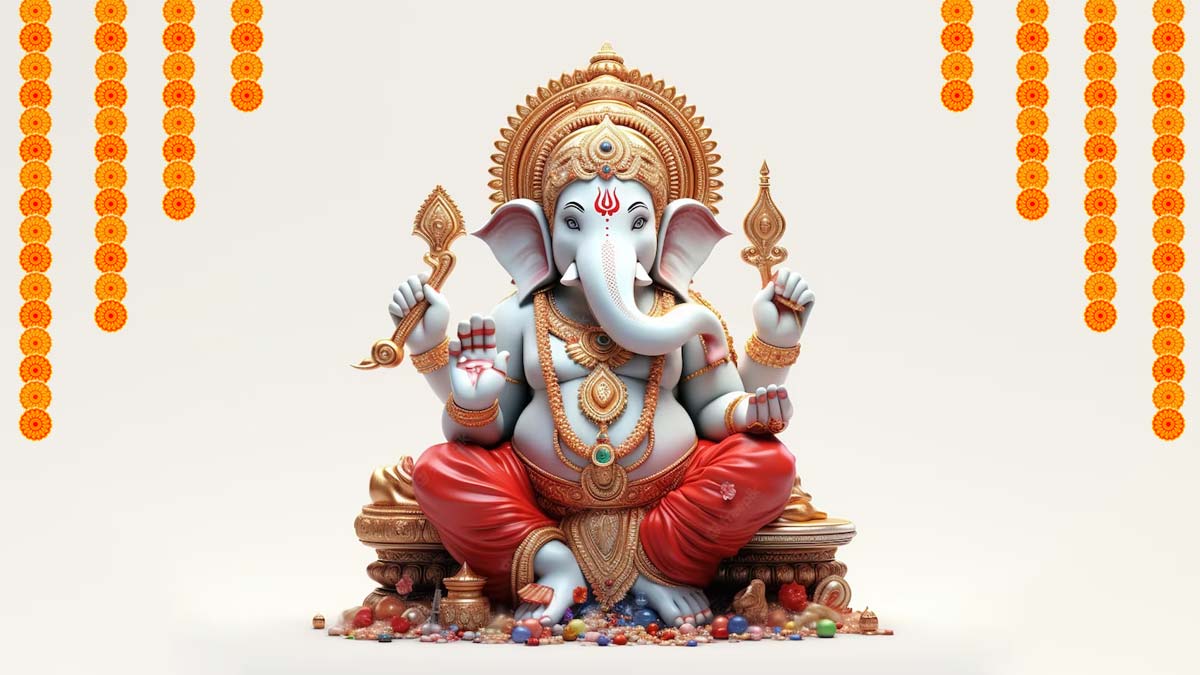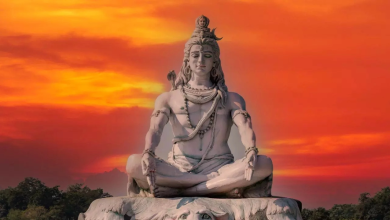Why Should Devotees Avoid Moon Sighting on The Eve of Ganesh Chaturthi?
Why Avoiding Moon Sighting on Ganesh Chaturthi Eve Is Crucial: Unveiling the Spiritual Significance
Avoiding Moon Sighting on Ganesh Chaturthi Eve Is Crucial: Unveiling the Spiritual Significance

Ganesh Chaturthi, one of the most vibrant and spiritually significant festivals in Hindu culture, is celebrated with great enthusiasm across India and the world. This festival honors Lord Ganesha, the deity known for his wisdom, prosperity, and removal of obstacles. The celebrations, which include the installation of Ganesha idols, elaborate pujas, and grand processions, culminate in the Visarjan (immersion) of the idol. However, among the various rituals and customs associated with this festival, there is a specific tradition that stands out: the avoidance of moon sighting on the eve of Ganesh Chaturthi. This practice has deep-rooted significance in Hindu culture, and understanding it requires delving into its historical, religious, and cultural contexts.
The Historical and Religious Context
1. The Mythological Tale
The tradition of avoiding moon sighting on the eve of Ganesh Chaturthi stems from a well-known mythological story. According to Hindu mythology, Lord Ganesha, the son of Lord Shiva and Goddess Parvati, was once subjected to a curse by the moon god, Chandra. This curse is said to have occurred because Ganesha, who was riding his vehicle, a rat, was mistaken by Chandra for an intruder. Chandra mocked Ganesha, which angered the deity and led to a curse being placed upon him.
The curse stated that anyone who saw the moon on the eve of Ganesh Chaturthi would face misfortune and embarrassment. To appease the moon god and to rectify this curse, Ganesha’s followers were advised to avoid sighting the moon on this particular night. This tradition, thus, serves as a form of respect for Lord Ganesha and the moon god, preventing the potential negative consequences associated with it.
2. Symbolic Significance
In Hindu culture, the moon is often considered a symbol of peace, calm, and good fortune. However, the story surrounding the moon’s curse on Lord Ganesha adds a layer of complexity to this symbolism. By avoiding moon sighting, devotees are not only adhering to a mythological narrative but also symbolically distancing themselves from any negativity or ill fortune associated with it.
Cultural Practices and Observances
1. Ritualistic Avoidance
On the eve of Ganesh Chaturthi, also known as Ganesh Sthapana or Ganesh Chaturthi Eve, devotees are instructed to avoid looking at the moon, either directly or indirectly. This practice is deeply embedded in the customs of the festival and is observed by millions of devotees. The belief is that by following this tradition, one can avoid any potential misfortune or embarrassment that may arise from inadvertently violating the curse.
This avoidance is often practiced through various means:
- Avoiding Outdoor Activities: Devotees are advised to stay indoors after sunset to prevent any accidental moon sighting.
- Covering Reflective Surfaces: Mirrors and other reflective surfaces are covered to prevent reflections of the moon from being seen.
- Adjusting Event Timings: Festivals and rituals are timed carefully to ensure that activities do not coincide with moon sighting.
2. Importance in Community Celebrations
In community celebrations and public festivities, organizers often take extra precautions to ensure that the moon is not visible to the gathered crowd. This is done by scheduling events and rituals in a manner that minimizes the risk of moon sighting and adhering to the cultural norms associated with the festival.
Practical Implications and Beliefs
1. Avoiding Superstitions
For many, the avoidance of moon sighting is a way to adhere to traditional beliefs and superstitions associated with Ganesh Chaturthi. While some may view these practices as mere superstitions, for devotees, they hold deep spiritual significance. Avoiding the moon is seen as a means of ensuring a smooth and successful celebration without the hindrance of negative energies or bad luck.
2. Enhancing Spiritual Focus
By avoiding distractions such as moon sighting, devotees are able to focus more intensely on the spiritual aspects of the festival. This enhanced focus allows for a more profound and meaningful celebration of Lord Ganesha’s arrival, reinforcing the festival’s devotional and cultural significance.
Modern Perspectives and Adaptations
1. Evolving Practices
In contemporary times, the practice of avoiding moon sighting has seen some adaptations. With modern lifestyles and urban environments, maintaining strict adherence to this tradition can sometimes be challenging. As a result, many devotees have found ways to adapt the practice to fit their circumstances while still honoring the tradition.
For instance, some people use technology, such as moon visibility apps, to check moonrise times and adjust their activities accordingly. Others rely on community guidelines and local customs to ensure compliance with the tradition.
2. Balancing Tradition and Modernity
As society evolves, the balance between maintaining traditional practices and adapting to modern lifestyles becomes crucial. Many communities and individuals strive to respect traditional customs while also embracing modern conveniences. This balancing act allows for the preservation of cultural heritage while accommodating contemporary living conditions. Just as we know Why is Sawan Month Considered Auspicious in Hinduism?
Conclusion
The tradition of avoiding moon sighting on the eve of Ganesh Chaturthi is a fascinating aspect of the festival that reflects the deep-rooted mythology and cultural practices associated with Lord Ganesha. Whether viewed through the lens of ancient mythology, symbolic significance, or practical observance, this tradition serves as a reminder of the profound connection between spirituality and daily life. By understanding and respecting this custom, devotees not only honor Lord Ganesha and the moon god but also contribute to the rich tapestry of cultural and religious practices that define Ganesh Chaturthi.
As with many traditions, the practice of avoiding moon sighting continues to evolve, accommodating the needs of modern devotees while preserving its core significance. This evolution ensures that the essence of the festival remains intact, allowing new generations to experience and appreciate the rich heritage of Ganesh Chaturthi.

